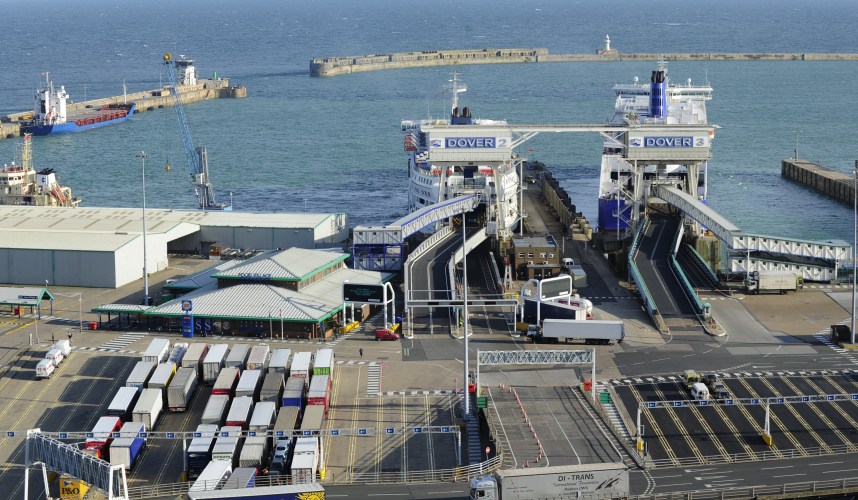
On January 1, 2021, the United Kingdom both implemented a free trade agreement (FTA) with the European Union that defines their post-Brexit trade relationship and became an independent party to the WTO Government Procurement Agreement (GPA). The FTA is part of the EU-UK Trade and Cooperation Agreement, which was signed on December 24, 2020, and implemented provisionally, pending approval of the European Parliament. This post looks at the GPA-plus commitments in the FTA’s public procurement chapter and Britain’s new GPA membership.
In the FTA, the UK and the EU exchange access to procuring entities and services that they do not include in their respective GPA commitments. They open the procurement of utilities and entities engaged in the production, transport, distribution or supply of gas or heat: for the EU, contracting authorities whose procurement is covered by its Utilities Directive; and for the UK, contracting entities whose procurement is covered by its Utilities Contracts Regulation 2016 and the Utilities Contracts (Scotland) Regulations 2016. Both include in this coverage privately owned companies that are engaged in gas or heat activities and operate on the basis of special or exclusive rights. The EU provides Canada with similar access in their comprehensive trade agreement, limiting it to contracting authorities.
The new FTA partners also add several categories of services to their GPA commitments: hotel and restaurant services, food serving services, beverage serving services, telecommunication related services, real estate services, business services and education services. The EU offers most of these services to Japan in their bilateral trade agreement but only real estate services to Canada.
Both parties limit the coverage of hotel and restaurant services, food serving services, beverage serving services and education services to a national treatment regime and apply thresholds that are higher than those in the GPA: €750,000 or £663,540 for procurement by central or sub-central procuring entities and €1,000,000 or £884,720 for utilities and other entities.
Even though their coverage of services is based on a positive list, both specifically exclude human health services, administrative healthcare services and supply services of nursing and medical personnel. This exclusion is consistent with Britain’s insistence in its FTA negotiations with the United States that it would not cover services of its National Health Service.
The Agreement incorporates most of the provisions of the GPA, excluding those not applicable to a bilateral agreement, and adds several new provisions. They include requiring all notices regarding covered procurement, including contract awards, to “be directly accessible by electronic means, free of charge, through a single point of access on the internet.” The GPA limits this requirement to notices of intended procurement by central government entities.
Another provision reflects the EU’s aim, initiated in June 2020, to address foreign subsidies in procurement. It allows a procuring entity that receives a tender with an abnormally low price to “verify with the supplier whether the price takes into account the grant of subsidies.” The EU also includes this provision in its trade agreements with Japan and Singapore. But, the UK FTA does not incorporate the Singapore FTA provision that permits a procuring entity to reject a tender when it establishes that the supplier has received foreign subsidies.
The post-Brexit agreement adds a requirement that each party “ensure that its procuring entities may take into account environmental, labour and social considerations throughout the procurement,” provided they are compatible with the rules established in the Agreement and are indicated in a notice or tender documentation. The GPA only makes reference to environmental considerations.
The FTA also elaborates on domestic review procedures. For example, where an impartial administrative authority hears bid protests, each party must ensure that the authority's members are independent and free from external influence, are not dismissed against their will, unless their dismissal is required by domestic measures, and at least one member has legal and professional qualifications equivalent to those for judges or lawyers.
Another provision details the corrective action that a procuring entity may take where its procurement is found to have breached the Agreement. The corrective action may include the removal of discriminatory technical, economic or financial specifications, repetition of the procurement procedure without changing the conditions, adoption of a new contract award decision or termination of a contract.
Government procurement was reportedly a late addition to the FTA negotiations. According to Borderlex, the UK had “long refused to include a public procurement chapter in the deal – until former prime ministerial adviser Dominic Cummings left Downing Street in November 2020.”
With its accession to the GPA in its own right, Britain covers the same procurement and applies the same reciprocity restrictions, as it did as an EU member. However, it has committed to update its GPA schedules by the end of March to reflect changes in its governmental organization, such as the creation of new entities. It would not be expected to incorporate in the GPA any of the new procurement commitments in its EU FTA until there is a new round of market access negotiations under the GPA.
Jean Heilman Grier
January 4, 2021
Related Posts
EU-Canadian Trade Pact Now Public
EU-Japan FTA: Examining Procurement Commitments
Post Permalink: https://trade.djaghe.com/uk-eu-trade-agreement-procurement/

